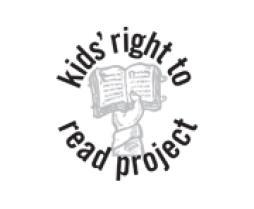Andy Towne is a member of the Class of 2007 at Campbell High School in Litchfield, New Hampshire, where parents recently challenged four stories. Andy recently published an editorial in The Nashua Telegraph voicing his opinions about the controversy.
Kids’ Right to Read: How did you hear about the removal of materials from Campbell High School’s curriculum? What was you initial reaction to the challenge?
Andy Towne: My sister, who is a current Campbell student, asked if anybody in the family knew why a news crew would have been filming at the high school, so I did a Google search and found the Union Leader article regarding the issue. My initial reaction was that I couldn’t really make a judgment until I’d read the stories, but I felt like the parent was making too much of the situation.
KRRP: Why did you feel it was important for you to respond to the removal of the stories (and elective English class) from the curriculum?
AT: I felt like it was important for people outside of Litchfield to hear things from a former student’s perspective, and to know how the CHS English department really was out to help the students prepare for life in the real world. My main goal was to support the teachers, because without them I’d be a very different person.
KRRP: How did you respond to the challenges?
AT: Once I read the stories, I thought that it was a complete overreaction, and that high school juniors and seniors are, for the most part, mature enough to handle discussion on those topics. I initially wrote down my thoughts about it, which further developed into my op-ed as I found out more information and time went on. I also emailed Mrs. Kathleen Reilly, the curriculum facilitator, to tell her that I and any students I’d talked to supported her and the entire English department.
KRRP: What sort of response did you receive for your recent op-ed?
AT: Since I’ve been away, I’ve only gotten a few comments about the op-ed and every single one has agreed with my points. Most said "well-written" and told me that they’re glad someone can stand up for what they think is right and write their thoughts out well.
KRRP: Reflecting on this controversy, what would you like people, especially youth, in your community and other communities confronting similar challenges to know? Why?
AT: My biggest thoughts would be to be respectful about a situation, and realize that other people are entitled to their own opinions. The worst thing you could do is be disrespectful and ignorant, because then nobody will want to listen to you. Stand up for what you think is right, offer a solution to the problem, be willing to compromise, and hopefully things will all work out in the end.
KRRP: The challenges in Litchfield focused on youth exposure to ‘explicit sexual material, rape, murder and drug use.’ Why do you think it is important for youth to read these stories and stories with similar themes?
AT: Plain and simple, those are topics that people have to deal with in everyday life. High school juniors and seniors don’t have long before they’re out in the real world on their own, so it’s good to know what’s out there, and how their friends might handle certain situations involving those issues. Many high schoolers already have exposure to sex and drug use, so why not talk about it in a structured environment where they can hear other peoples’ thoughts? While they wouldn’t talk about personal experiences in that kind of setting if they weren’t comfortable, they can share their thoughts.
KRRP: Across the US there are many challenges against books under the auspices of ‘child-protection’. What do you think adults should know about youth right to read?
AT: Parents and other adults should know that teachers are trained to teach relevant material to students, and most of the time their decisions on what is age appropriate or not are correct. The teachers have the opportunity to get to know the students and decide what they think the students can handle, when, and in what environment. A lot of kids get exposure to these issues anyways, and reading isn’t going to hurt them anymore. Kids aren’t going to read literature and decide to do drugs, rape or kill someone, etc.
KRRP: Would you like to comment on the recent resignation of Kathleen Reilly, the curriculum facilitator?
AT: I have been in contact with Mrs. Reilly, and she has said she is at ease with her decision and would like everyone to know that the superintendent was very supportive. It is sad to see her leave Campbell, as she is one of the most passionate and dedicated people I’ve ever had the pleasure of meeting, and I wish her the best of luck in the future. However, I would like to say that I don’t believe this issue is the sole reason she decided to resign but I cannot say that with certainty.
Click here to read KRRP’s letter to the Chari of the Litchfield School Board
For more information visit NCAC’s blog:
Click here for "Hemingway, King, Sedaris kicked out of New Hampshire high school classes"
Click here for "Litchfield teacher resigns amid short story controversy"
In the past individuals and groups who support free speech have responded in numerous ways to book bans and challenges, including by creating Facebook groups, petitions, organizing marches and ‘read-ins’ and tweeting to spread the word.
You can also call the Litchfield School District (603) 578-3570 or email Dennis Miller, the Chair of the Litchfield School Board at [email protected] directly to voice your opinion.


